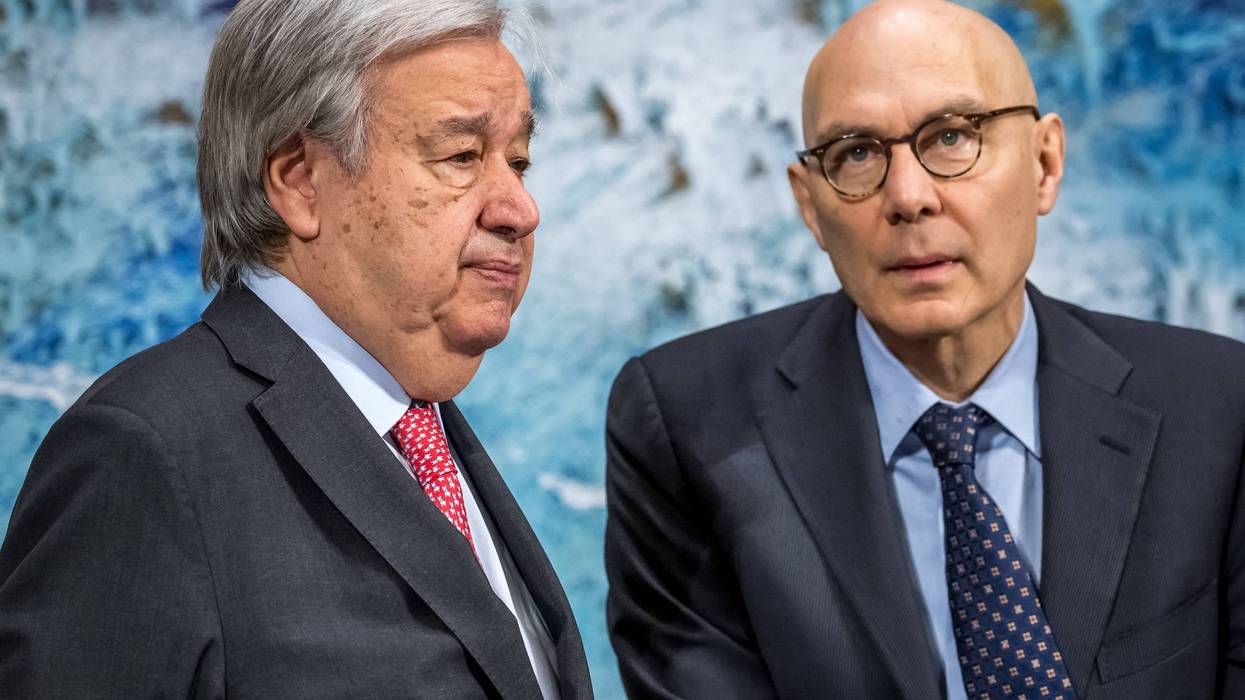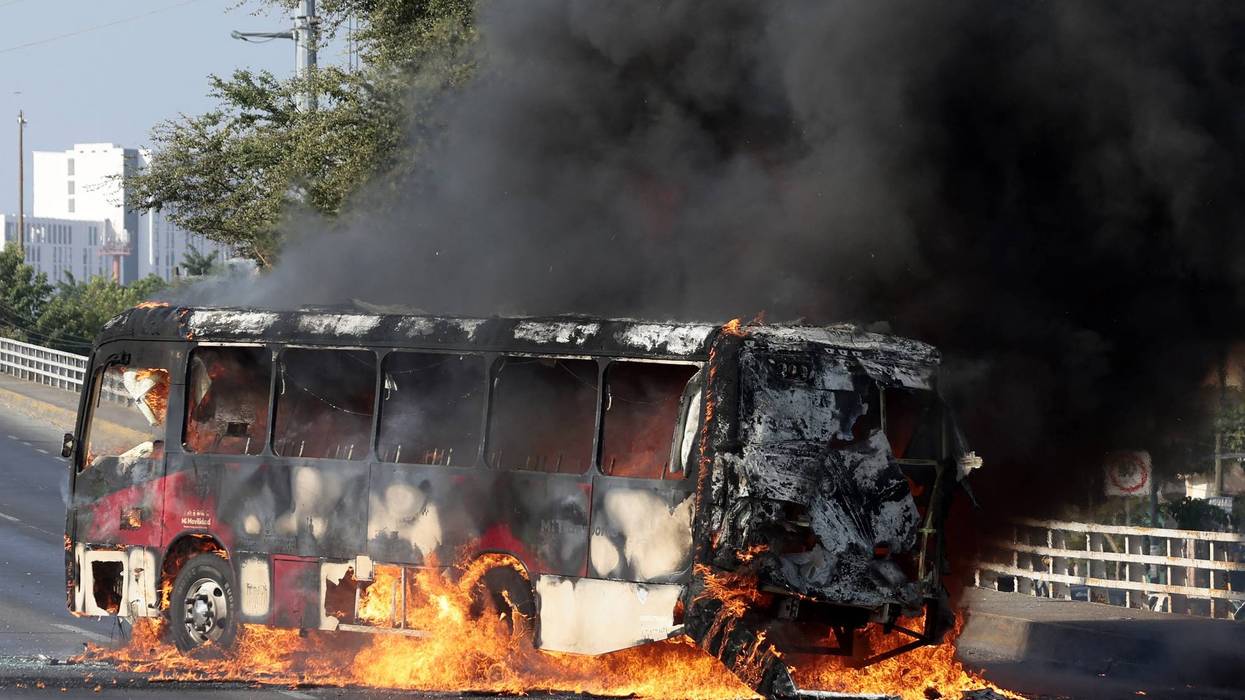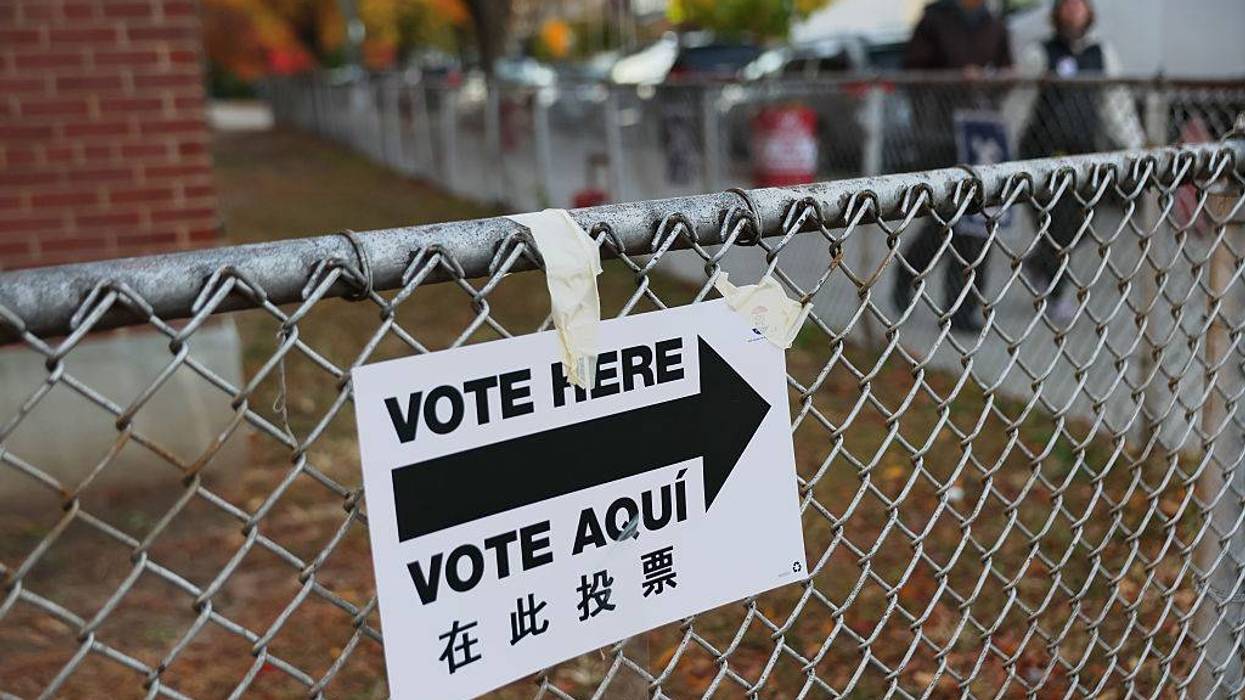Following the recently concluded Summit of the Americas held April 17-19, in Trinidad and Tobago, President Barack Obama claimed that the U.S. defense budget was 600 times greater than that of Venezuela. While it is true that, in conventional warfare, a Venezuelan victory over this country is totally beyond any credulity, the question remains regarding how much relative military strength does Venezuela actually project. Venezuelan President Hugo Chavez is widely acknowledged as having carried out an aggressive policy of military acquisitions in recent years, which has had far-reaching implications particularly through purchasing Russian military equipment. In effect, this arms program made Chavez appear on Washington's SOUTHCOM security radar screen as well as those of neighboring South American nations, especially Colombia.
Military Overseas' Providers in the Chavez Era
A key facet of the Russian-Venezuelan military partnership has been Chavez's continued interest in purchasing state-of-the-art Russian weaponry. This process, which can be traced back to 2006, at the same time marked the beginning of Moscow's active return to the western hemisphere, as its influence in the region continually has spread through various precise spheres (military cooperation, commerce, trade and cultural relations). Meanwhile, Venezuela significantly has linked itself to Moscow and made Russia its most important military arms-provider in the region. This inevitably has fomented a comparison of the Caracas-Moscow relationship with the Havana-Soviet relationship dating back to the origins of the Cold War, even if such a comparison is not entirely warranted.
In a series of transactions, Venezuela has purchased military hardware from Russia in deals that now total between $4.4 and $5.4 billion. The agreements included the acquisition of Sukhoi-30-C planes and 50 Mi-type helicopters (types Mi-17B, Mi-35 and Mi-26). Of the Sukhois, 24 have already been delivered and the other 12 should arrive by the end of the year. After the U.S. State Department, in the early era of Chavez rule, thwarted Venezuela's plans to buy a shopping list of Spanish military inventory, including military air transports in 2006, because the aircraft contained U.S. components, which required Washington's authorization. After this, Caracas decided to purchase from Russia 10 Ilyushin IL-76E (NATO designation Candid) troop/cargo transports and two Ilyushin IL-78 (NATO designation Midas) in-flight tankers. In addition, Chavez purchased 100,000 Kalashnikov type 103 rifles as well as 1,000 Dragunov-type sniper rifles and a facility to assemble them. In September 2008 Chavez purchased a $1 billion anti-aircraft missile system from Russia as well.
It should also be noted that Venezuela has looked to military arms distributors other than Russia for political reasons and in order to diversify its suppliers. China is supplying the Venezuelan air force with 10 long-range JYL-1 radars. Three such radars have already been installed in Paraguana and Mene Mauroa in Falcon as well as in Apure state, which is close to the country's border with Colombia. All ten radars should become operational by 2013. Reports in February 2009 established that Venezuela had purchased 24 K-8 Karakorum trainer/light fighter planes from China. The first six will be delivered in early 2010 and will be used for anti-drug and training operations, according to Caracas. In February Chavez declared that "Venezuela will buy Chinese radar and airplanes specially designed for training ... and as part of modernizing our defense system."
In mid March 2009, Spain delivered the second of eight patrol boats they are building for Venezuela. The Spanish state-owned military shipyard Navantia signed a deal for the vessels with Venezuela in 2005. Reports point out that the patrol boats will have a helicopter deck and 35mm anti-aircraft guns.
The Kalashnikov Factories
Russia reached a deal with Caracas whereby the former will build manufacturing facilities in the latter's territory to fabricate AK rifles (types 103 and 104) as well as its respective ammo. This will be the first such factory ever to be built in the Americas for that particular kind of weaponry.
Caracas has remained somewhat silent regarding these assembly plants. However it is known that Russian technicians and equipment began to arrive in 2008 to begin constructing the facilities, which supposedly will be operational in 2010 and are being built in the inner Venezuelan city of Maracay, according to unofficial reports. The plant is being built in partnership with the Compania Anonima Venezolana de Industrias Militares (Anonymous Venezuelan Company of Military Industries - CAVIM) which is well known for manufacturing the Zamurana 9mm pistol. It is unclear if a new wing within CAVIM's existing sheds will be configured to house the Kalishnikov's assembly lines, or if one of the previously existing wings will be refigured. The government has not even publicly acknowledged the fact that Maracay is likely to be the location where the weapons will be manufactured. Nonetheless, it seems logical, as CAVIM maintains facilities there and the city is also home to several military headquarters, including that of the army's IV armor division.
Rumors and Orders not Fulfilled
There are also reports that, in the near future, Venezuela may acquire Russian-made T-72 tanks and BMP-3 armored personnel vehicles. Such rumors go back to last November, when Russian President Dmitry Medvedev visited Caracas, but no deal had been established at that time.
Weapons Galore
Venezuela also has declared its intention to purchase a number of Russian-made warships and submarines, but as of yet no deal has been agreed upon. An October 2008 report by United Press International explained that Chavez aims to purchase at least three diesel-powered Varshavyanka (NATO designation Kilo) class submarines. However, such rumors have been in circulation for quite some time now. It was previously thought that Venezuela would strive to acquire as many as half a dozen such submarines, but recent reports have scaled back the number to just three. It is unclear if even this reduced order will ever materialize or be scuttled.
An April 2009 report by Nabi Abdullaev in DefenseNews points out that Caracas plans to acquire several dozen surface warships, including Project 14310 Mirage patrol boats, which are floating missile platforms designated to engage any adversary from a distance of seven to 130 kilometers. Other speculations include that Venezuela also seeks to acquire the new Russian-made Su-35 fighter aircraft as well as 20 or 30 TOR-M1 9M330 missiles.
In mid-April 2009, President Chavez announced that he had acquired a number of Russian-made surface-to-air missiles, namely the Igla SAM systems. According to reports, the portable missiles weigh 42 pounds and can reach 19,500 feet. However, the Russian arms-exporting monopoly, Rosoboronexport firm, quickly declared that no such deal had been agreed upon. Nevertheless, in
discussion with COHA, an analyst at the Federation of American Scientists pointed out that "the missiles on display during a recent military parade appear to be advanced Igla-S (SA-24) MANPADS, not first generation SA-7 Grails." The footage (which is available in YouTube at https://www.youtube.com/watch?v=u_XT0nzvIGQ regarding a military parade held on April 19, 2009) appears to show dozens of Iglas, according to the FAS analyst.
The Myth of the Super-Rich Chavez
Perhaps what is most revealing about the power of the Venezuelan armed forces is the question of how much more equipment can Chavez afford to purchase for his military. The boom of military purchases has been centered around the price of oil, which brought about previously-unheard-of wealth to Venezuela's coffers. However, the world's financial crisis, the collapse of oil prices, and too many purchases in too many fields have brought about problems that Chavez couldn't easily have anticipated. Progress in the development of the Kalashnikov factory has been slow because Venezuela has not kept up with its payments, which has prompted Moscow to suspend sending technicians and equipment to the South American country. Also, due to a lack of Caracas' prompt payment, Spain has ceased to deliver the patrol boats. In an attempt to cut defense expenditures, the Chavez government has pushed for early retirement among its senior military officers and is also re-deploying slimmed-back military units.
In an interview with COHA, Rocio San Miguel, director of the Caracas based research center Asociacion Civil Control Ciudadano para la Seguridad, la Defensa y la Fuerza Armada Nacional (Citizen's Civilian Control Association for Security, Defense and the National Armed Forces - CCA, https://www.controlciudadano.org/ ) explained that "according to Chavez, Venezuela is spending anywhere between 20 to 30 billion dollars in military contracts, but this is likely an exaggeration, as can be seen in the lack of payment for the Kalishnikovs, the Sukhoi [...] and many of the newly acquired planes already lacking spare parts."
The Myth of Equality among the Chavez-era Armed Forces
The events of April 2002, namely the coup that briefly ousted Hugo Chavez from power, are important in order to understand how he has striven to re-organize a military hierarchy ever since. Analyst Rocio San Miguel argued that "the Bolivarian armed forces have gone from a de-professionalization to an open 'politization' to almost 'praetorianism.'" The Venezuelan specialist further argues that around 200 hardcore Chavista military officers are in control of the armed forces' most sensitive positions. In addition, Chavez openly has given preference to the army (himself being a former army officer) above the other branches of the military. For example, the newly acquired Sukhoi planes and the Mi helicopters are under the control of the army, not the air force.
Replacing Outdated Equipment?
In discussing Venezuela's military might, the emerging issue is whether the country has crossed an open, ambiguous line separating purchases meant to replace outdated equipment or perhaps an aggressive arms build up. After Chavez first came to power, the U.S. stopped providing Venezuela with spare parts for its U.S.-manufactured defense weaponry. At the same time that Chavez and his government upgraded the country's arsenal, they decommissioned aged OV-10 Bronco airplanes, as well as its French-made AMX-30 main battle tanks.
In addition, there may already be issues cropping up with the newly acquired Russian equipment. In early May 2009, one of the new Mi-35 helicopters crashed during a flight close to the Colombian border killing 18 soldiers, including Brigadier General Domingo Alberto Feneite. The cause for the crash has not been officially. The crash followed another incident involving new Russian equipment- this time a Mi-17 helicopter- which crashed in June of last year at Fort Tiuna, the military headquarters located in Caracas.
Military Size
Apart from reports on military purchases, important aspects of any military - for example, the size, morale and readiness of the Venezuelan armed forces - receive little mention by the international media. Chavez, a former lieutenant colonel, frequently praises his military's might assuring that it can successfully protect the nation's sovereignty if attacked (arguably by the U.S., which Chavez refers to as "the empire"). After a number of situations, such as the failed April 2002 coup against him that was followed by occasional purges, it seems that the current governing military chain of command is rather loyal to him.
The Venezuelan military forces have a combined strength of 140,000 troops consisting of both men and women. An interesting Chavez-era phenomenon has been the establishment of a paramilitary force in 2008, protected under the 2008 Ley Organica de la Fuerza Armada Bolivariana (Law of the Bolivarian Armed Forces) via Chapter V (articles 43-51). Chavez boasts that this militia has over 1 million members, but reports indicate that combat-ready individuals probably amount to no more than 10,000 to 15,000 members, in addition to its approximate 200,000 non-armed, non-combat members. Venezuelan analysts have described this militia as Chavez's personal "praetorian guard," being that the militia is not under the supervision of the armed forces, but instead, under the direct control of the president (article 43) and, for administrative issues, the defense minister as well.
Venezuela's Friends Aren't Necessarily Washington's Friends
Another concern is the role of the South American nation's military in conjunction with the government's foreign defense policy, namely the relationship that Caracas shares with other regional nations, which, more often than not, are Washington's active foes. Besides the aforementioned military purchases from China and Russia, Venezuela also has approached Teheran. In late April, Iran's defense minister, General Mostafa Mohammad Najjar, visited Venezuela, where he met with his Venezuelan counterpart, Ramon Carrizalez. The Iranian defense minister described existing defense ties between the two nations as "comprehensive and strategic," according to the semi-official Fars news agency. While no defense alliance per se has been signed, conservatives in Washington see Caracas' efforts as a security issue revolving around a new kind of "axis of evil," pertaining to the Chavez administration's recently established relationship with Russia, China and Iran.
Caracas & Its Neighbors: Is There a Military Threat?
Another key question in discussing Venezuela's military might is what is the state of the country's existing relationship with each of its immediate neighbors? While it is true that Chavez is well-known for his occasional inflammatory declarations, which tend to raise alarms in weaker bordering countries as well as among conservatives and Cold War-era hawks in Washington, those who are familiar with his style see this as more a matter of bark than bite.
An overview of Venezuela and its series of security relationships with the outside world, as well as regional issues with its neighbors may help to illuminate this discussion:
- Guyana. Venezuela has had a historical border dispute with the country though the disagreement has never resulted in warfare. In November 2006, a Venezuelan general led a group of around 30 soldiers into Guyanese territory and destroyed several Guyanese-owned dredges, however, the situation did not escalate. It is unclear if Chavez gave the order for the general to carry out this operation or if the military officer acted on his own accord.
- Netherland Antilles and Aruba. Chavez has declared that Venezuela had historical claims to the islands, located only a stone's throw away from Venezuela's coast. It is a matter of discussion if Chavez's statements were made because he believes in them or to confront the U.S. (which has two military bases in Aruba and Curacao) or Holland. At one point, Chavez labeled a former Dutch defense minister as "Washington's pawn." The Antilles are part of the Kingdom of Holland, and falling under its defense perimeter, would thus be defended by the Dutch in the case of a conflict. Holland and Venezuela held military exercises in order to boost confidence building in November 2008. Any attempt by Venezuela to militarily take control of the Antilles would erode any good standing Chavez may have with regional governments in the Caribbean, not to mention destroying the lucrative commercial relationship between Venezuela and Holland and, ultimately, prospects to improve Caracas' relation with Washington.
- Brazil. The regional behemoth and Caracas held anti-drug military exercises on August 2008. Diplomatic, political and commercial relations aside, it would be an outlandish scenario to envisage strife between the two countries. The border between Venezuela and Brazil lies in the least developed part of the Amazon, which without any roads, would make it impossible to utilize traditional warfare. Such a conflict would have to be based around guerrilla-tactics (for which Venezuela's AK rifles would be useful) as well as heavily relying on helicopters for the transportation of troops and equipment (the Venezuelan Mi-type helicopters would be a plus). But the disparity of strength between the two countries all but rules out the likelihood of violence.
- Colombia. The country's historical tensions with Venezuela date back to pre-Chavez years. However, chronically strained relations between Uribe and Chavez have not helped this situation. Tensions have come about, among other factors, from Chavez declaring his sympathy for the FARC. In March 2008, when Colombia bombarded Ecuadorean territory where FARC leaders were hiding, Chavez sent his troops to the border, declaring he would go to war with Colombia in order to protect Ecuador (ruled by his like-minded friend Rafael Correa). In March 2009, Venezuela launched operation "Sentinel," deploying the country's armed forces and National Guard along its 2,219-kilometer border with Colombia. The goal of the operation, according to Caracas, was to fight crime and protect "national sovereignty." The operation followed a verbal shouting between Chavez and Colombian Defense Minister Juan Manuel Santos earlier that month.
A Regional Military Power
The rhetoric coming from both Caracas and Washington has helped project a mirage of Venezuela's military power. While Chavez strives to highlight his country's might, a number of his attempted acquisition efforts did not come to fruition, such as the purchase of aircraft from Spain. In addition, his acquisitions may prepare Venezuela for conventional warfare with neighboring states; U.S. conservatives seem to view the Caracas-Moscow relationship as being set in stone. However, it is more likely that the relationship is heavily based on revenue, which continues to flow in and are the cause of Venezuela's expanding arsenal.
Military strength cannot be simply judged by the number of operational tanks or military aircraft one possesses, but by the size and level of preparation and training of its armed forces. Thus far, Chavez has had complications with sectors of his military, but the rank-and-file troops continue to remain loyal to him and to the constitutional order. Exercises like those carried out with the Russian navy in November 2008 are good for morale, and also helps mold the Venezuelan military into an authentic regional power, though certainly not a hemispheric security threat, given its still very limited capacity to project its force.
This analysis was prepared by COHA Research Fellow Alex Sanchez
May 13th, 2009




